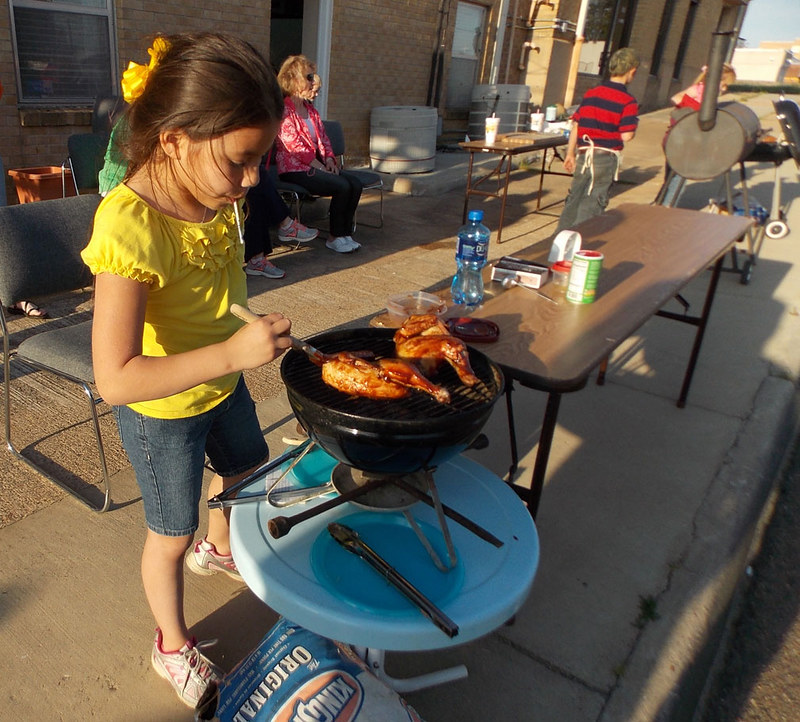Food safety rules take no holiday, even for Father’s Day
By The Cooperative Extension Service
Fast Facts:
-
- Food safety rules apply when grilling outside
- Use a thermometer to check doneness temps in meat
(390 words)
TEXARKANA, Ark. – Grilling outdoors doesn’t mean food safety rules stay inside, says Carla Haley-Hadley, Miller County extension agent for the University of Arkansas System Division of Agriculture.
With Father’s Day coming up, there’s no doubt Arkansas will see its share of charcoal smoke wafting through the weekend.
“We want to remember, safety first,” she said. “Make sure the grill rests securely on the surface. Never leave the grill unattended and or use indoors or in a garage where the fumes cannot be vented.”
When it comes to food safety, always pre-heat the grill to kill microorganisms, Hadley said. “Always use separate clean tongs and plates when removing food from the grill. This will help to avoid cross contamination of bacteria with uncooked meat.”
When it's time to grill the food, cook it to a safe internal temperature.
“Use a food thermometer to be sure,” she said. “The food thermometer should be placed in the thickest part of the meat and should not be touching bone, fat, or gristle.”
Check the temperature in several places to make sure the food is evenly heated.
Steaks and roasts should be cooked to 145 degrees Fahrenheit for medium rare and 160 degrees for medium. Ground meats should be cooked to 160 degrees Fahrenheit and poultry, to at least 165 degrees. For fin fish: 145 degrees or until the flesh is opaque and separates easily with a fork.
Hadley said grilling tools are key to a good meal.
“Tongs are one of the most important tools. These enable you to turn the food without stabbing it,” she said. “When you use a fork, or something to stab the meat and turn it, you are allowing the juices, which keep the steak moist, to be lost.”
To ensure those juices stay in the meat, Hadley suggests letting the meat rest before cutting, no matter how hungry the chef and diners might be.
“This doesn’t have to be a long time, just a few minutes is adequate to allow the juices in the steak to redistribute themselves,” she said.
For more information about food safety, visit your county extension office or www.uaex.uada.edu.
The Arkansas Cooperative Extension Service is an equal opportunity institution. If you require a reasonable accommodation to participate or need materials in another format, please contact your County Extension office (or other appropriate office) as soon as possible. Dial 711 for Arkansas Relay.
Pursuant to 7 CFR § 15.3, the University of Arkansas System Division of Agriculture offers all its Extension and Research programs and services (including employment) without regard to race, color, sex, national origin, religion, age, disability, marital or veteran status, genetic information, sexual preference, pregnancy or any other legally protected status, and is an equal opportunity institution.
# # #
Media Contact: Mary Hightower
Dir. of Communication Services
U of A Division of Agriculture
Cooperative Extension Service
(501) 671-2126
mhightower@uada.edu
